Pancake Day (March 1): History, Tradition & Celebrations
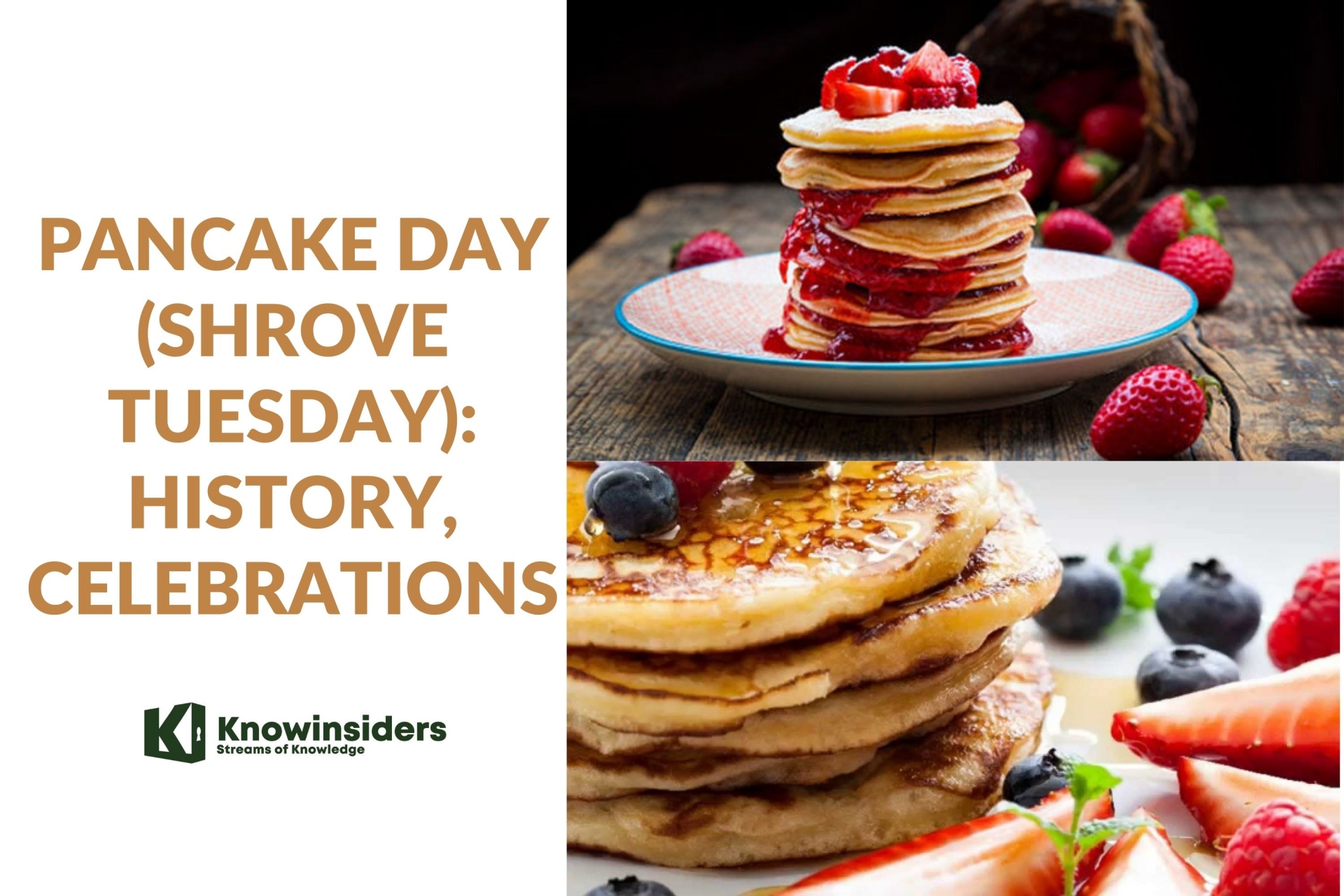 |
| Pancake Day. Photo: KnowInsiders |
Being the last day before the penitential season of Lent, related popular practices, such as indulging in food that one sacrifices for the upcoming forty days, are associated with Shrove Tuesday or Pancake Day celebrations, before commencing the fasting and religious obligations associated with Lent.
The term Mardi Gras is French for Fat Tuesday, referring to the practice of the last night of eating richer, fatty foods before the ritual fasting of the Lenten season, which begins on Ash Wednesday
History of Pancake Day - Shrove Tuesday
The tradition of acknowledging the start of the Lenten fast has been observed for at least hundreds of years. By the age of the late Middle Ages, the feast of Shrovetide lasted until the start of Lent. It was customary in many cultures to eat pancakes or other foods made with the butter, eggs, and fat that would be given up during the Lenten season. The particular tradition of British Christians enjoying pancakes on Shrove Tuesday dates back to the 16th century.
Along with its celebration of feasting, another tradition of Shrove Tuesday includes Christians repenting of their sins in preparation to start the season of Lent. Ælfric of Eynsham's "Ecclesiastical Institutes" from about 1000 AD declared: "In the week immediately before Lent everyone shall go to his confessor and confess his deeds and the confessor shall so shrive him as he then may hear by his deeds what he is to do [in the way of penance]".
In many Protestant and Roman Catholic Christian churches, a popular Shrove Tuesday ritual is the ringing of the church bells (on this day, known as the Shriving Bell) "to call the faithful to confession before the solemn season of Lent" and for people to "begin frying their pancakes". Some churches also burn the palms distributed during the previous year's Palm Sunday liturgies to make the ashes used during the services held on the very next day, Ash Wednesday.
Why is it called Shrove Tuesday?
It comes from the word ‘shrive’, which means to give absolution after hearing confession. So Shrove Tuesday is the day when people went to confession to prepare themselves for Lent, which begins on the following day, Ash Wednesday.
When is Pancake Day?
Pancake Day takes place 47 days before Easter Sunday. Because the date of Easter Sunday is dictated by the cycles of the moon, Pancake Day can occur anytime between February 3 and March 9. This year's batter action takes place on Tuesday March 1 2022.
Why Do We have Pancake Day?
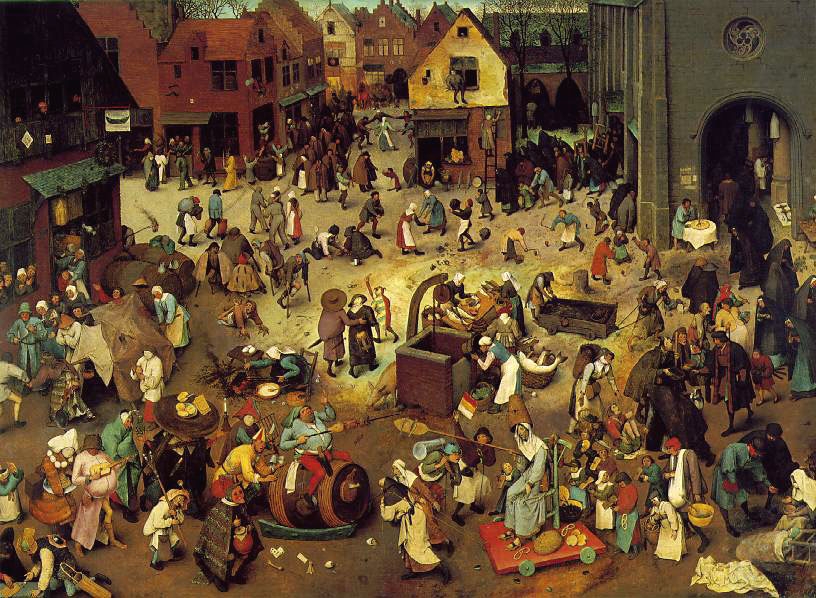 |
| Photo: Pinterest |
As mentioned above, Shrove Tuesday marks the last day of freedom before Lent, which would have been a 40-day period of abstinence before the celebration of Easter.
A good excuse to use up any sugar, eggs, milk and butter left lingering in your cupboards, meaning eating them would help to prepare for the fasting season ahead.
It seems that this practice has persisted and even become popular in modern times because it was often seen as a social affair with such an easy recipe making it possible for anyone to get involved.
Why Pancakes?
No one is really sure why pancakes were so widespread on this day as Scots would have probably made other items such as Crumpets and bannocks but perhaps it is the fact that pancakes are so easy to make and adaptable that has made them so popular.
One other theory is that each ingredient used in pancake making may have represented one of the 'four pillars of the Christian faith'.
Eggs for creation, flour as sustenance or the staff of life, salt for wholesomeness and milk for purity.
Traditions of Shrove Tuesday
Shrove Tuesday serves multiple purposes of encouraging Christians to repent of their sins before the start of Lent on Ash Wednesday and also giving them the opportunity to partake in a last round of jubilation before the beginning of the austere Lenten season, which is characterized by making a Lenten sacrifice, fasting, praying and several spiritual disciplines, such as checking a Lenten calendar and reading a daily devotional.
Pancakes are connected with Shrove Tuesday as a way to use up rich foods such as eggs, milk, and sugar, before the fasting period of the 40 days of Lent. Liturgical fasting calls for eating simpler food while abstaining from meat, dairy products, or eggs.
On Shrove Tuesday, the final day of the Shrovetide season, many Christians, such as Anglicans, Lutherans, Methodists, and Roman Catholics, have an emphasized focus of self-examination, reflecting on what sins they need to repent for, and what improvements in life or aspects of spiritual growth they need to ask God's help in edifying.
Additionally, many Christians conclude their determination of what Lenten sacrifices they will make for the 40 days of Lent on Shrove Tuesday. While undergoing a Lenten sacrifice, it is helpful to pray for strength; and encouraging fellow Christians in their fast saying, for example: "May God bless your Lenten sacrifice."
How is Pancake Tuesday celebrated elsewhere around the world?
Celebrated in many countries it is known as “Mardi Gras” or “Fat Tuesday” in France and parts of the US and is a day of celebration, while in other countries they eat different treats.
In Germany (their day is called Fastnacht) they eat doughnuts, in the Netherlands they have waffles (as well as pancakes), and in Russia they eat lots of blinys.
Pancake Day in the UK
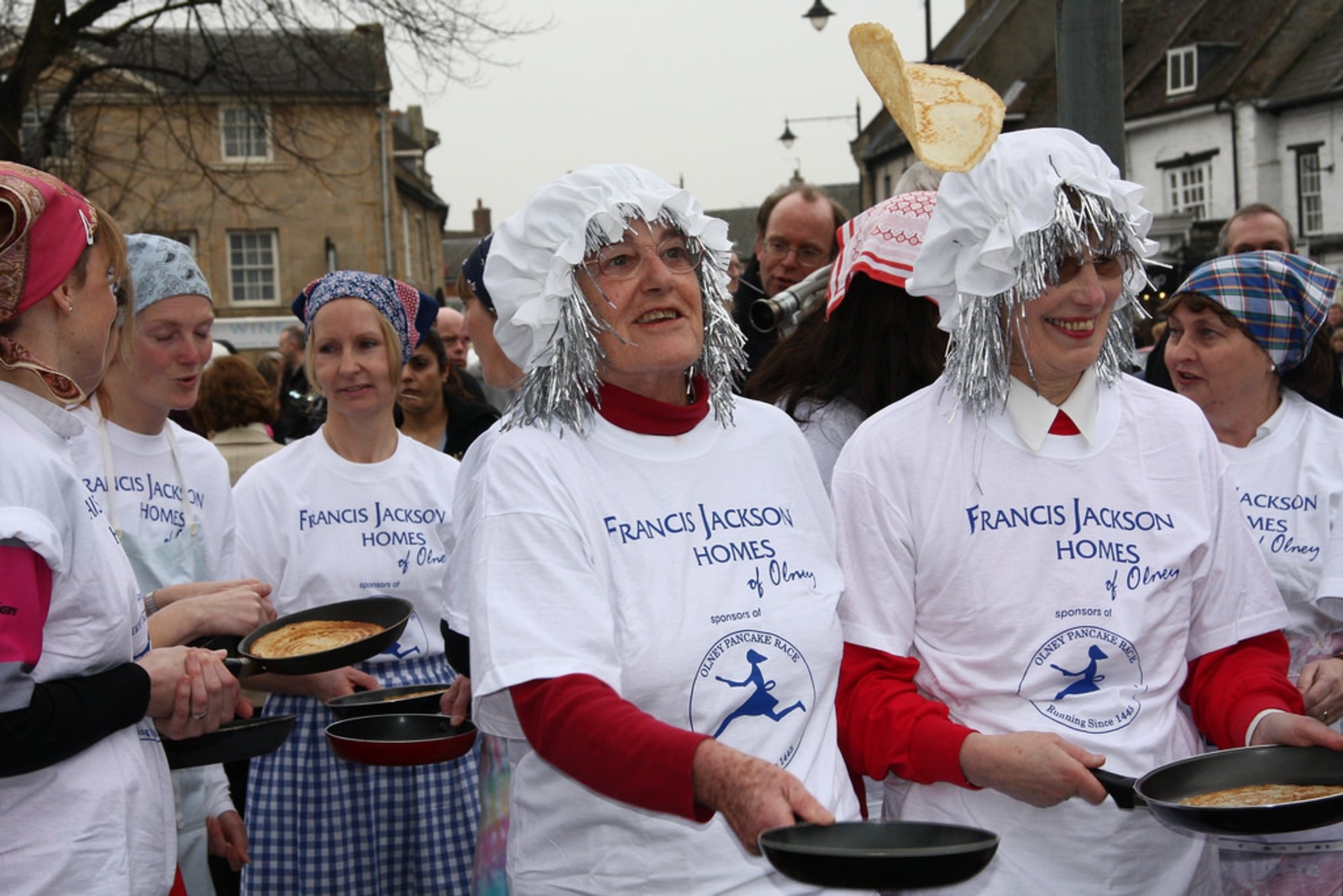 |
| Photo: Rove.me |
The British version of Pancake Day is something you are most likely already familiar with but every family celebrates in a different way. Emily from Twin Mummy and Daddy has shared with us how they tend to celebrate this day.
Emily: “Our pancake tradition is to make pancakes from scratch with the kids. They love helping to make the batter, whisking up all the ingredients and watching mummy and daddy flipping them over. We tend to roll them up and pack them with fruit for kids. We call them fruity pancake roll ups! My husband and I tend to have a squeeze of lemon with ours and a sprinkling of sugar.”
Pancake Day in Denmark and Germany
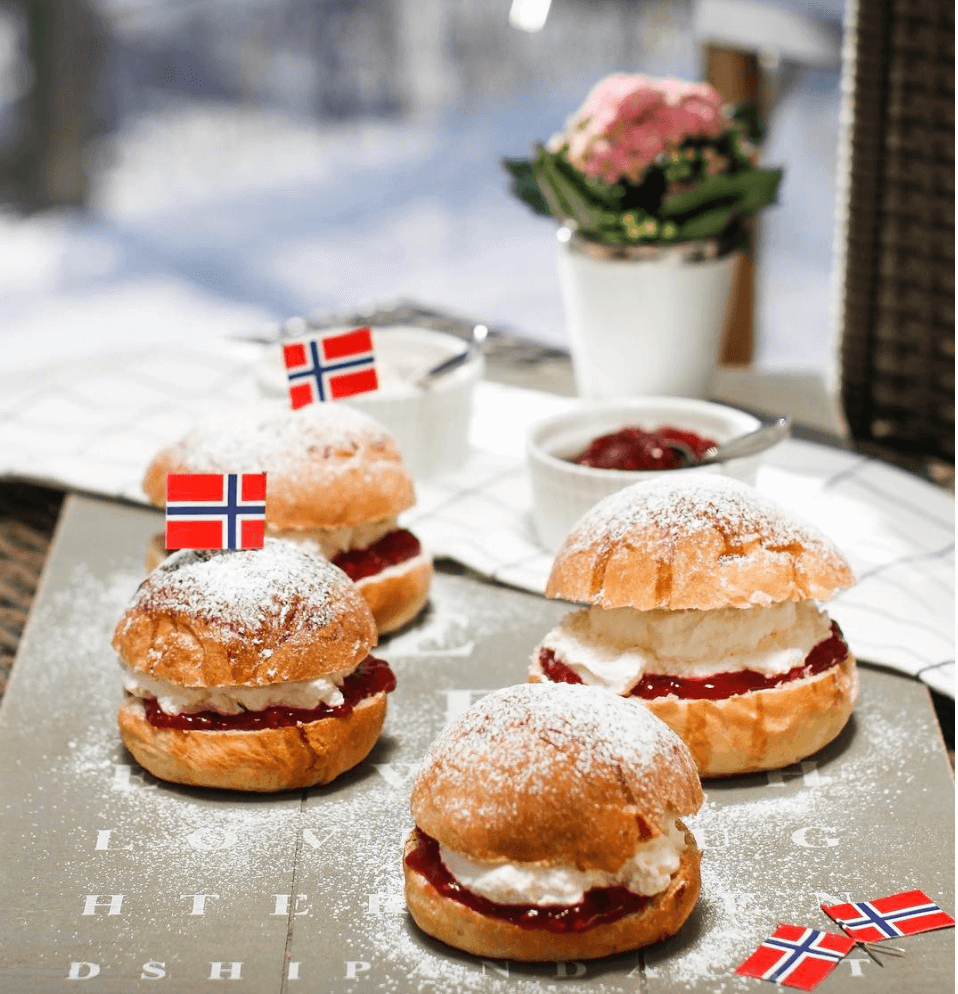 |
| Photo: Camp America |
German blogger Laura Berg now lives in Denmark and writes about her life there through her blog The Copenhagen Tales. We asked her to share with us some traditions from both Germany and Denmark.
“In Denmark, Shrove Tuesday or Pancake Day is called Fastelavn. A number of traditions surround the festivities – children dress up in costumes and play a game called ‘Beat the Cat out of the Barrel’. In this game, a wooden barrel filled with sweets is hit with sticks until it breaks, and whoever deals the final blow is crowned ‘King or Queen of cats”. Instead of pancakes, Danes eat a special kind of bun, Fastelavnsbolle, which is often filled with cream and glazed with icing or chocolate. There’s even a poem about those buns!
In Germany, the highlight of the carnival or Fasching, festivities is Rose Monday, but in some regions, Shrove Tuesday is celebrated with parades as well. Further, there are some traditions and rituals held around midnight, the night between Shrove Tuesday and Ash Wednesday. These are meant to conclude the carnival festivities, for example with symbolic funerals or burnings of the figure representing the sinful spirit of carnival or ‘Fasching’.”
Pancake Day in France
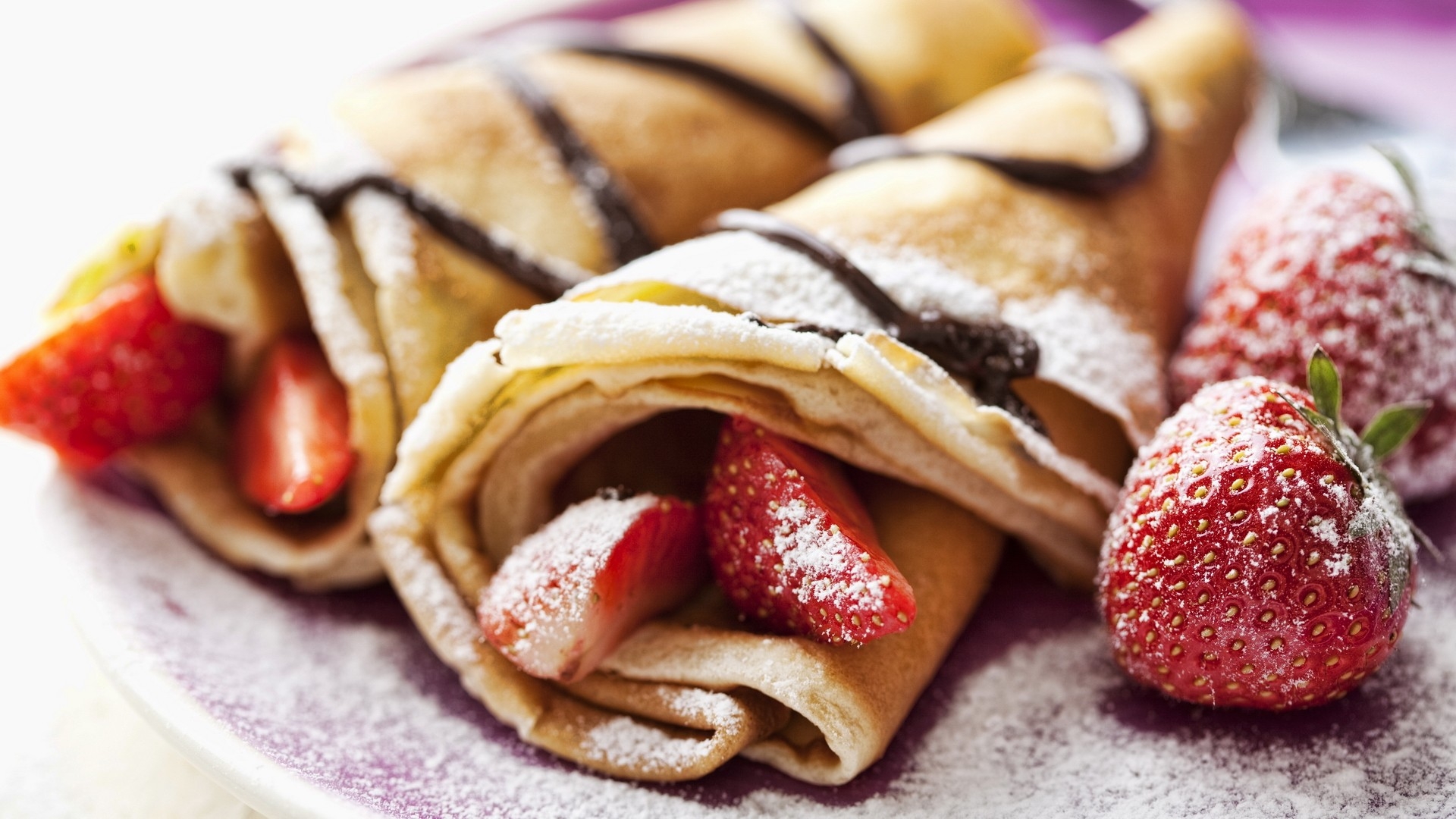 |
| Photo: hampergifts |
In France, Shrove Tuesday is known as ‘Mardi Gras’ (fat Tuesday) but the main day for eating pancakes is ‘Chandeleur’ on the 2nd of February where they eat crêpes (pancakes in French). It is a fun day for all the family to get together and eat delicious pancakes. As sometimes Chandeleur falls on a working day, it’s common to organise something during the weekends with family and friends to prepare and enjoy the pancakes altogether. The most popular pancakes are the ones with chocolate spread and banana, but sugar and jam are of course always invited to the party.
Pancake Day in Poland
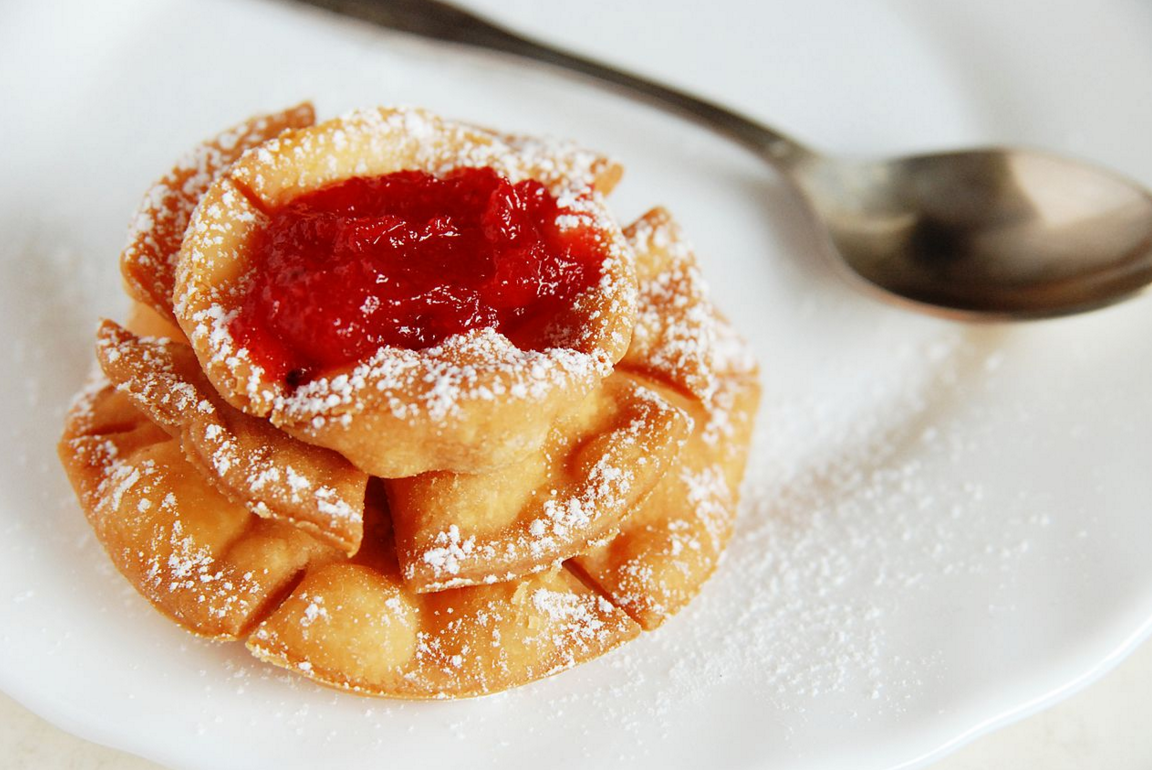 |
| Photo: hampergifts |
In Poland, Pancake Day is called ‘Tłusty czwartek’. Pancake Day literally translates as ‘Fat Thursday’ and the pancakes are actually doughnuts. There are also competitions to choose the most delicious doughnuts during different festivals.
Many of our hampers have some yummy jams perfect for your pancakes, such as the ones in our breakfast hamper. We hope that this post has given you an uncontrolled craving for pancakes and you will be celebrating Pancake Day with your family and friends.
Don’t hesitate to comment bellow to tell us a little more about your own pancake tradition!
| Prayer and Scriptures for Shrove Tuesday Shrove Tuesday Prayer God Our Father, As we prepare to begin Lent, help us to remember what today, Shrove Tuesday, is truly about. Thank you that you Love all of us as your children and that through the death and resurrection of your Son Jesus, we can receive forgiveness for our sins. Help us to celebrate and live that message of forgiveness today by forgiving those who have sinned against you. Lord, we know that you created the world and you created us. You created pancakes and you created our taste-buds too! Enable us to enjoy ‘pancake day’ in a spirit of celebration of the goodness of your creation. We make this prayer through Christ our Lord, Amen. Prayer for Ash Wednesday Almighty and eternal God, you hate nothing you have made and you forgive the sins of those who are penitent. Create in us new and contrite hearts that we truly repent of our sins, acknowledge our wretchedness, and obtain perfect forgiveness from you, the God of all mercy; through your Son, Jesus Christ our Lord, who lives and reigns with you and the Holy Spirit, one God, now and forever. Amen. Shrove Tuesday Scriptures Repent therefore, and turn again, that your sins may be blotted out ~ Acts 3:19 From that time Jesus began to preach, saying, “Repent, for the kingdom of heaven is at hand.” ~ Matthew 4:17 The Lord is not slow to fulfill his promise as some count slowness, but is patient toward you, not wishing that any should perish, but that all should reach repentance. ~ 2 Peter 3:9 And let us consider how to stir up one another to love and good works, not neglecting to meet together, as is the habit of some, but encouraging one another, and all the more as you see the Day drawing near. ~ Hebrews 10:24-25 That is, that we may be mutually encouraged by each other's faith, both yours and mine. ~ Romans 1:12 And day by day, attending the temple together and breaking bread in their homes, they received their food with glad and generous hearts, praising God and having favor with all the people. And the Lord added to their number day by day those who were being saved. ~ Acts 2:46-47 |
 Mardi Gras Day: Date, Time, Traditions Mardi Gras Day: Date, Time, Traditions Mardi Gras, also known as Fat Tuesday or Shrove Tuesday is celebrated popularly in New Orleans and some places in the world. |
 World Water Day: Date, History, Significance, Celebration World Water Day: Date, History, Significance, Celebration While most of us take clean water for granted in the fight against COVID-19, billions around the globe are unable to effectively wash their hands. ... |
 Certified Nurses Day: History, Meaning And Celebration Certified Nurses Day: History, Meaning And Celebration Certified Nurses Day (March 19) honors nurses who work hard to save lives. Read on to know this day’s meaning and celebration. |


























